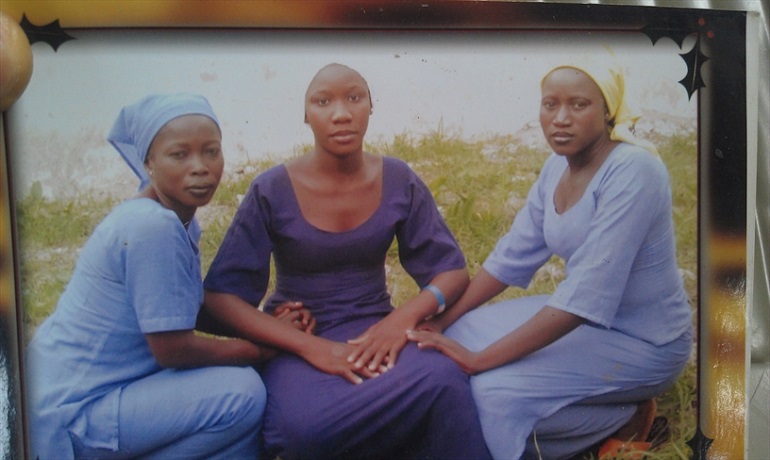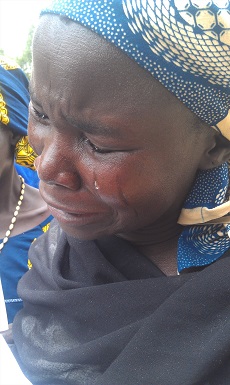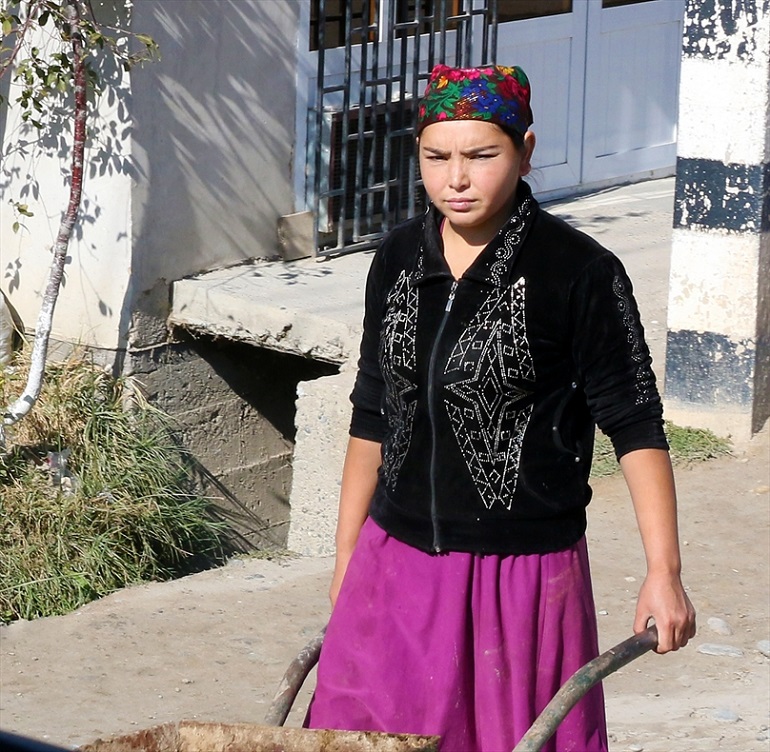
For the first time ever, the persecution of women as it differs to that of men has been examined by the analysts of the 2018 World Watch List. The list, compiled by Open Doors International, researches over 50 countries where it is most difficult for Christians to live. The resulting Gender Profiles of Persecution reveals a striking multi-layered exploitation of Christian women’s structural vulnerabilities: they are exposed to nearly twice as many persecuting factors as Christian men.
Eighty-three per cent of women around the world identify with a faith group, compared with 79 per cent of men. Other research shows that, of all faiths, Christianity is the most persecuted religious group: 215 million Christians experience “high, very high or extreme levels of persecution”, according to Open Doors.
And according to Pew Research, the global Church in 2010 was estimated at about 31% of the world population, with Muslims coming second, at about 23%.
This year, World Watch List researchers explored, and listened to, feedback that few even in the global Church want to acknowledge: that the complex pressures Christian women regularly experience come at them in the ugliest of forms, and they don’t look the same as the ones Christian men face.

The sheer number of “common” pressures spontaneously listed by women relative to men is almost overwhelming. In contexts where women are already disadvantaged, Christian women are specifically and most frequently targeted by three coercion tactics: forced marriage, rape, and other forms of sexual violence.
Compellingly, Christian men reported an entirely different mix of pressures; their top three all related to work, military/militia conscription and physical violence (non-sexual).
Therefore no overlap exists between the most prevalent gendered experiences of pressure to abandon one’s faith.
But whatever form it takes, the ultimate goal of all gendered persecution is to destroy local Christian communities, as evidenced by a detailed report on the subject published after the kidnap of the Chibok girls in 2014.
In response, the CEO of Open Doors International, Dan Ole Shani, said: “It is deeply disturbing to consider that Christian women are exposed to nearly twice as many persecuting factors as men. This is one of the findings in this report. I urge my colleagues, in Open Doors and everywhere, especially the men, to consider what more we can do to strengthen these persecuted women and push for the protection of the most vulnerable, such as widows, single women and girls. May God move us to pray more, speak up more and make such women a priority in the service we provide to the persecuted Church.”
Persecution is not gender-blind
Gender Profiles of Persecution definitively puts to rest the myth that persecuting agents are gender-blind. In practice, Christian women and men both face various pressures for their faith via different social, legal, physical or economic pressure points. However, while equally cruel to all under its gaze, the face of persecution is not blind to gender, nor the vulnerabilities resulting from bias against women, where it exists.
Persecution exploits a multiplicity of vulnerabilities
Far from being gender-blind, persecution exploits all available vulnerabilities, resulting in a multiplicity of persecuting agents. Last July, the US Commission on International Religious Freedom issued a report, Women and Religious Freedom: Synergies and Opportunities, which found that “while a common misperception persists that women’s rights to equality and [also to] freedom of religion or belief are clashing rights, the two are actually indivisible and interrelated”.

This inter-sectionality of human-rights suppression creates an environment in which it becomes expedient for aggressors to target men and women of ‘the other’ religious community differently, according to their gender.
Researchers found a prime example of this dynamic in Uzbekistan, where “total submission is expected from women to their parents and if married, to their husbands”. Researchers explained further that pressure comes not only from family but also from the state and, for Orthodox believers, their Church: “This makes them more vulnerable to persecution – both as Christians and as women who challenge the existing order. Christian women and girls are suffering from verbal and physical abuse, threats, beatings, detention, interrogation, fines, imprisonment, job loss, discrimination, excommunication, home detention, forced marriage, family violence and rape, shaming, divorce, and loss of possessions.”
Likewise, legal vulnerabilities represent yet another significant area of compounding susceptibility for women. According to a researcher reporting on Jordan: “When married to non-Christian husbands, female converts [to Christianity] risk abuse and death threats – which cause some to flee. They are also faced with travel restrictions. Travel bans can be imposed by the authorities but also by family, for instance to prevent the female convert from leaving the country. If this ban is violated, a court case can be started for ‘travelling without permission’.”
To impinge on one’s human rights because of one’s religious beliefs can amount to persecution, the report says.
Multiple forms of persecution perpetrated against women are regularly shrouded beneath cultural differences. For instance, where Christian women live within a different value system (e.g. under Islamic law, or sharia), practices which are far from gender-neutral – such as polygamy, child marriage and female genital mutilation – instead neutralise the female gender of the Church. A Nigerian researcher concurred: “Many [Christian women and girls] are also forced into marriage with non-Christians. The fact that there are laws which permit underage marriage in some states (as well the existence of cultural and religious norms that discourage girls from going to school) contributes to this problem.”
Any point of vulnerability for an individual can be exploited as a means of control and coercion regarding their faith. The report’s detailed analysis reveals both the broad array of pressures regularly faced by a single Christian woman and the regularity with which these complex pressures are being used in different regions around the globe.
Gender-based persecution results in unequal violence
As the picture of persecution tactics used against each gender unfolds, the awful truth that we would all rather avoid slowly dawns: women face more (both in quantity and variety) physical violence than men.
The violence against men can be extreme. As one Libyan researcher recounted: “Forced labour and forms of slavery are widespread forms of abuse and persecution experienced by Christian men.” However, although quietly, the Christian women of these countries echo the same messages, one to the next, about the insidious violence they endure because of their gender and their faith, whispering “me too” – in a double reference to the recent #MeToo campaign triggered by Hollywood mogul Harvey Weinstein’s alleged behaviour.
The World Watch List is calling out this pervasive use of gender-based violence against women: it is part of a complex persecution dynamic.
Individual targets of persecution, but a communal impact
The leveraging of pressure against each gender results in a different experience of persecution for men and women, but results in the same rippling impact upon the Church community, diminishing community resilience.
Very often, the communal impact is one of physical survival. As the Nigerian researcher explained: “The persecution of women and girls has a detrimental effect on the Church and Christian families. In addition to the great emotional toll and social cost, in communities where widows are the main breadwinners, such persecution also affects the economic wellbeing of the community.”
Turkmenistan researchers concurred: “When a Christian man becomes a target of persecution, and fined or imprisoned, his whole family will suffer. Losing jobs will affect the whole family.”
Other times, it is the insidious and invisible impact of trauma, as is clearly exemplified from Libya: “The form of persecution that occurs particularly to Christian women and girls is sexual assault and rape. In addition to the physical pain and injury that such attack causes on the victims, the trauma and emotional hardship it causes to their family, friends and fellow Christians is very high.”
Similarly, in Mali: “Young men are subjected to abduction, forced conversion and conscription in militia in the northern parts of the country. This has a devastating effect on their families and fellow Christians who are traumatised by such persecution.”
Mixed into so many of the family and communal dynamics described in the report is the isolation created by shaming or shunning, which alienate an individual from their community and tear apart families. For instance, in Iran: “The issue of honour and shame is an important element within Iranian society, “a woman’s conversion and arrest are often more shameful to families than when male members leave Islam.”
This ‘shame and shun’ tactic, when harnessed and at work both inside and outside the Church, is a powerful coercive force used against both genders.
Elizabeth Miller is a freelance writer and analyst; Helene Fisher is the senior women’s strategist and specialist of Open Doors International.
![In Jordan, "when married to non-Christian husbands, female converts [to Christianity] risk abuse and death threats". (Photo: World Watch Monitor)](https://www.worldwatchmonitor.org/wp-content/uploads/2018/03/Jordan_2016_0260105126.jpg)